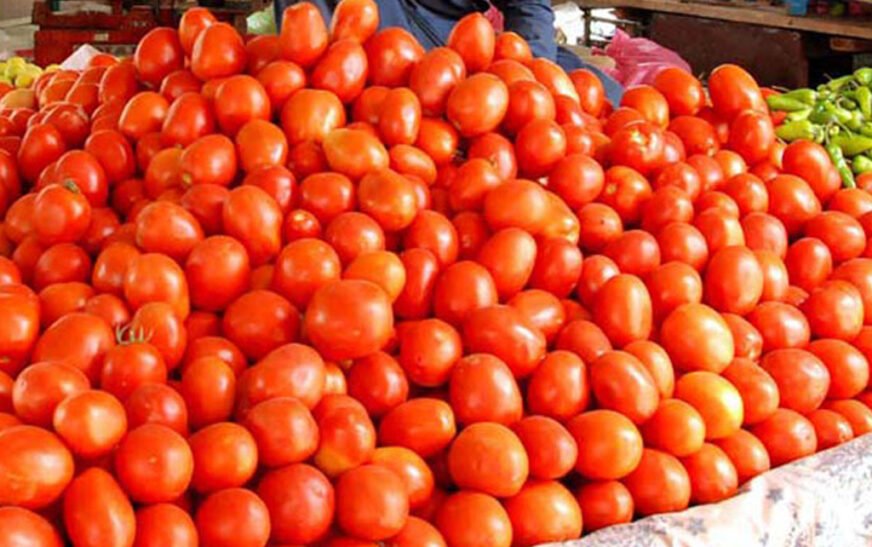PESHAWAR: The price of tomatoes has jumped to Rs 300 per kilogram in Peshawar, which angered the consumers and they blamed the authorities for failing to control the official prices of daily commodities.
According to a report published in Express News, this price increase coincides with the seasonal shift, which has seen a reduction in supply. The local administration is unable to enforce pricing, as vendors ignore government pricing directives and sell tomatoes for substantially higher sales prices.
As such, many people have cut back on their use of tomatoes, a staple of Pakistani cuisine. Many residents expressed alarm at the uncharted price increase and reported that they would like the local authorities to enforce market pricing in a more timely manner in order to stabilize tomato prices.
“The government should step in. The prices are simply getting out of hand for families,” commented one local resident.
Despite prior warnings and price lists from local authorities, regulatory enforcement is minimal, leading one to ponder how effective the assigned market monitoring team is in this local jurisdiction.
ALSO READ: ANP slams Punjab govt for halting wheat, flour supply to KP
It is worth mentioning here that the residents of Peshawar are already facing high prices of flour and wheat in the provincial capital.
According to details, Market sources report that the price of a 20-kilogram bag of mixed flour has risen by Rs. 150 over the previous two days; it now sells rising from Rs. 2,000, at Rs. 2,150. A 20-kg bag of fine flour has likewise seen a Rs. 100 rise, reaching Rs. 2,300.
The Flour Dealers Association blamed the price rise on limits on wheat and flour movement from Punjab, a major provider to Khyber Pakhtunkhwa.
Chairman of the Pakistan Flour Mills Association, Badruddin Kakar, has asked the Punjab government to quickly relax the traffic limitations and eliminate check posts. Obstructing the free flow of wheat and flour are these factors.
Kakar cautioned that flour prices could increase further if the problem is not fixed rapidly, worsening the food affordability situation for low- and middle-income families.















